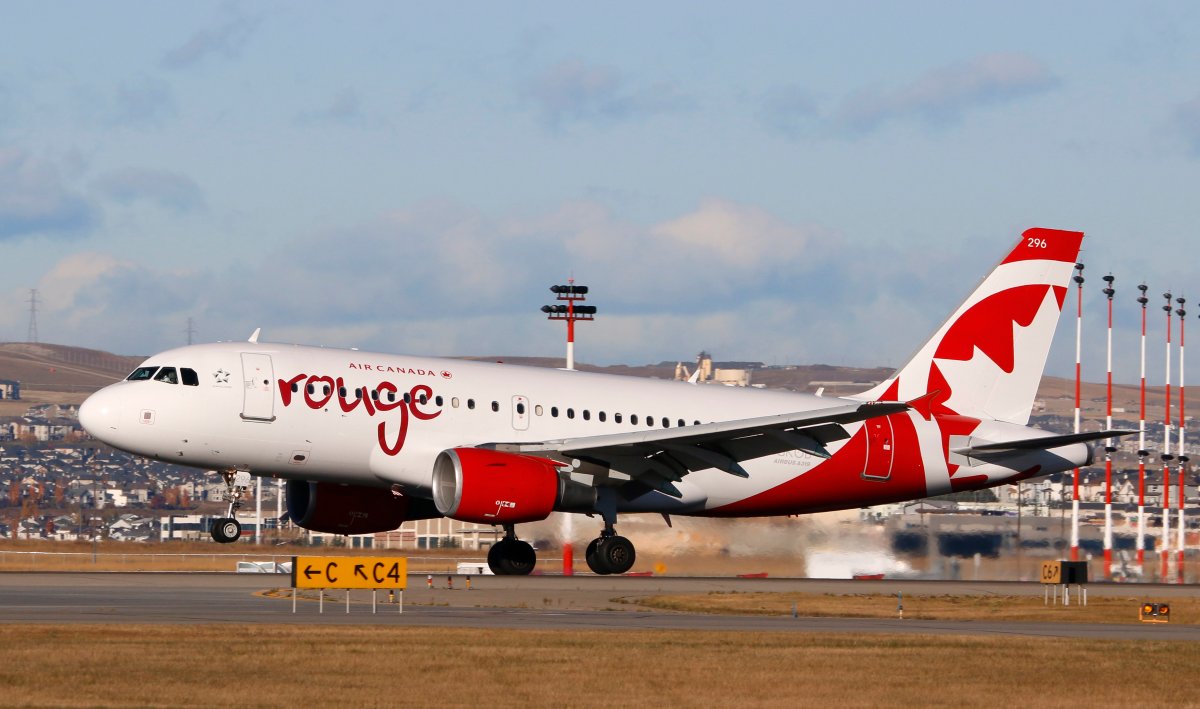Deals on flights between Canadian cities that cut airfares in some cases by nearly half are turning up thanks to new pricing recently introduced by Rouge, the relatively new “leisure” airline owned and operated by Air Canada.

A flight Monday morning between Calgary and Vancouver, for example, cost $117 through Air Canada’s sister airline. That compares to the $215 Air Canada is charging customers flying on its mainline to Vancouver.
The catch: the cheaper Rouge flight isn’t to YVR — rather it continues on to Honolulu following a stopover in Vancouver. But if you’re looking for the cheapest route, why not book with Rouge and simply not show up at the gate to the connecting flight to Hawaii?
“It’s $98 cheaper to buy a ticket from Calgary to Honolulu via Vancouver and hop off the plane in Vancouver than it is to buy a non-stop ticket to Vancouver,” Ben Cherniavsky, an analyst at financial services firm Raymond James said in an April 8 research note.
Cherniavsky found many other examples of cut-rate Rouge flights that continued onto trans-border destinations after a Canadian stopover.
A ticket from Edmonton to Phoenix by way of Vancouver, for example, was $80 cheaper than a direct to YVR. Winnipeg fliers could get to Toronto for $52 less if they booked a Rouge flight to Orlando and simply got off at Pearson International.
In an email, Air Canada said discounts that encourage this kind of ticket buying aren’t common. “We do not see very much of this as such pricing anomalies are quite rare,” spokesperson Peter Fitzpatrick said.
‘Hidden city’
Experts say Air Canada is offering cut-rate airfares on Rouge’s transborder routes to fill seats and win customers away from WestJet and other airlines. And like other carriers, it strictly prohibits this kind of gaming, which is sometimes called “hidden city” ticket buying.
Legal action
Airlines have gone so far as to sue over the practice. More specifically, they’ve sued those who facilitate it, such as apps and online search engines, saying the practice affects the airlines’ ability to sell unused seats.
In a lawsuit against one such online service last fall, U.S. carrier United Airlines said the ticketing technique “interferes with United’s ability to sell unused seats on the final leg(s) of connecting flights, resulting in the loss of revenue that United would have earned by selling the unused seats.”
United teamed up with online travel service Orbitz to file suit against Skiplagged.com in October last year, seeking at least $75,000 (U.S.) in damages and lawyer fees.
“This practice violates our fare rules, and we are taking action to stop it to help protect the vast majority of customers who buy legitimate tickets,” Christen David, a spokeswoman for United told Bloomberg News at the time.


Comments